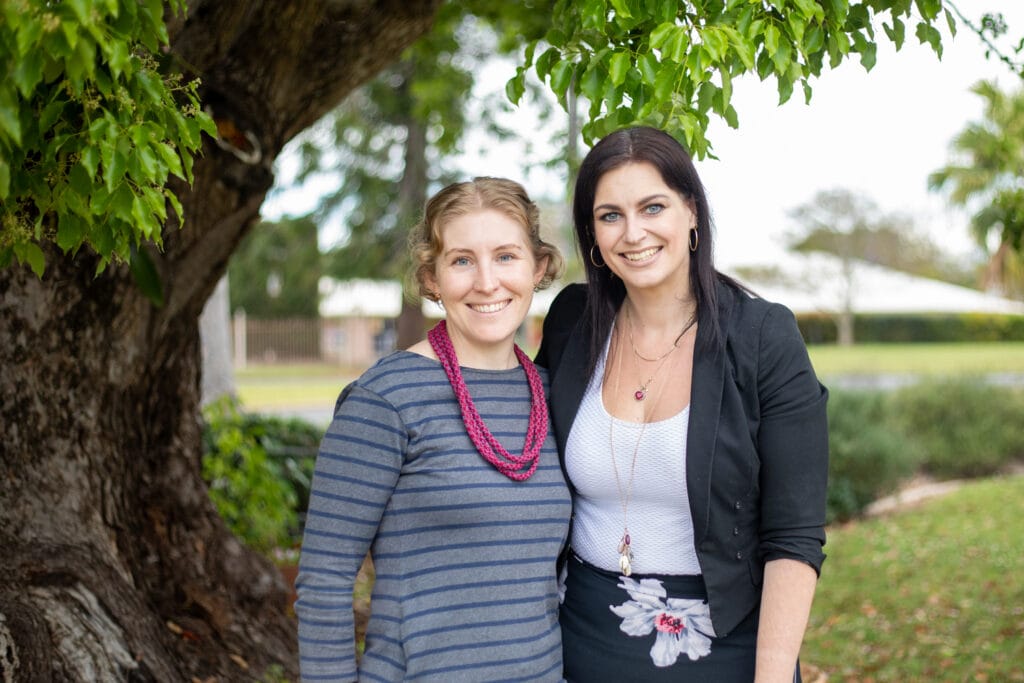
Being a part of a strong family unit can be as challenging as it is rewarding. If the challenging aspects are beginning to outweigh those rewarding moments, it may be helpful to seek family counselling.
Our Clinical Lead and Provisional Psychologist, Emma Braun and our Program Manager for Counselling, Jessica-Lee (Jess) Stonier answer your questions about Family Counselling and whether it’s right for you.
What happens in family counselling?
Family counselling won’t look the same for everyone. Everything from the number of sessions, who comes to each session and the frameworks and strategies used all depends on your needs and situation.
“[A] family therapist’s key skill is facilitation,” Emma explains. “It’s about holding a group of people safely and not necessarily telling them what’s right or wrong… [it’s about] helping the family negotiate that themselves.”
Most journeys start with each family member having an individual session with their counsellor so they can understand what the challenges are, and what style of counselling will work best, before bringing the family together to begin working toward a shared goal.
Throughout a mix of individual and family sessions, your counsellor will help you navigate any challenges or conflict while building the skills necessary to solve them as a family.

Our Clinical Lead and Provisional Psychologist, Emma Braun (left) and our Program Manager for Counselling, Jessica-Lee Stonier (right).
How many family counselling sessions will we need to attend?
Signing up for family counselling doesn’t have to be a long-term commitment and you may find that only attending a few sessions may be necessary. Your counsellor will work with you for as little or as long as you need.
“Family therapy doesn’t have to be years of therapy,” answers Emma. “A couple of dedicated sessions can set you up for success.”
“We’re not keeping [families] unnecessarily” adds Jess. “They need to learn what they need to learn and then they can go and do life.”
If you’re utilising a mental health treatment plan you can claim up to 20 sessions per calendar year. Family counselling can also be accessed through community organisations at low or no cost.
When should a family seek counselling?
Emma and Jess say that most instances of families seeking counselling are due to a breakdown within the family, struggling household function and in some cases, domestic violence.
“The main reason is something’s not working and we need it to work, or we need to find another way,” says Jess.
“One of the things that comes up a lot is that families haven’t necessarily negotiated family values. They haven’t talked about what it means to be this family and how we are going to overcome a problem,” adds Emma.
While family counselling can support you through a crisis or breakdown, you don’t have to be experiencing a major challenge to seek it.
“I actually think it’s something that every family should have a crack at,” Emma states. “Even if you feel like it’s all rolling along well, it’s probably not a bad idea to go sit with someone and check that everyone in the family feels heard, everyone has the same idea about what family expectations are, how we can solve problems in our family. Those are really good things to solve. They’re good things to know about yourself and the people around you before the problem hits.”
“You can always learn something,” Jess agrees. “We can come in at any point of time and just tweak and change things a little.”
What are signs of a family not functioning?
This all depends on what the ‘norm’ is for each family.
“Every family has something in it that is easily swept under the rug and can make problems,” says Emma.
The following are some warning signs of family disfunction:
- Forms of neglect or abuse being used in the family to manage a problem
- Mental illness or health issues are disrupting family routines and dynamics
- Friends and family are noticing that the family isn’t functioning as well as usual
- Regularly struggling to get to work or get the kids to school
- Feelings of failure or that you’re never winning within the family
- Feelings or evidence of unfair power dynamics within the family
- Family members are withholding or hiding things
- Family members feeling rejected within the family or their community and/or culture
How can family counselling help?
“There is no successful or failing family,” Jess explains. “It’s about how that family feels and what they’re trying to do.”
Family counselling can help you and your family to:
- Improve your problem solving and communication
- React respectfully to each other’s thoughts and feelings
- Find ways to dedicate time to communicate that suits your family and schedule
- Ensure vulnerable members of the family are heard
- Balance power dynamics
- Give each member a sense of belonging and connection within the family and their community and/or culture
How can I access family counselling with Mercy Community?
Families can access our family services by:
- Self-referral
- Internal referral
- Referral from your GP or another practitioner
Find out more about our counselling services and how we can support you and your family.



